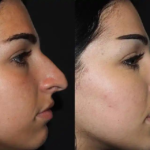In the quest for optimal health, the lines between medicine and nutrition often blur. With chronic diseases like diabetes, heart disease, and obesity on the rise, the connection between food and health has never been more critical. But can your doctor, who primarily deals with diagnosing and treating illnesses, also be your go-to expert on nutrition and diet? Or should you search for a dietitian near me to handle this specialized area? In this article, we’ll explore whether doctors can effectively double as nutrition experts or if seeking a professional dietitian is the better route.
The Role of Doctors in Nutrition
Doctors play a crucial role in the healthcare system. They diagnose, treat, and prevent diseases, often with the help of medications and surgical procedures. However, as the medical community increasingly recognizes the importance of diet in managing and preventing diseases, more doctors are incorporating nutritional advice into their practice.
Medical Training and Nutrition Education
One of the key points to consider when discussing whether doctors can be experts in nutrition is the level of training they receive. According to a study published by the National Academy of Sciences, the average medical school in the United States dedicates less than 1% of total lecture hours to nutrition education. This amounts to about 19-21 hours over the course of a typical four-year medical program. Comparatively, a registered dietitian spends hundreds of hours studying nutrition, food science, and diet planning during their specialized education.
Can Continuing Education Bridge the Gap?
Some doctors choose to pursue additional training in nutrition through continuing education courses. These courses can range from a few hours to several weeks and cover various aspects of diet and health. However, even with this extra training, doctors may still lack the depth of knowledge that a certified registered dietitian has. The difference lies in the focus—doctors are trained to diagnose and treat, while dietitians are trained to understand the intricacies of how food affects the body on a day-to-day basis.
The Expertise of a Dietitian
When searching for a “dietitian near me,” you’re seeking a professional who has spent years studying the science of food and its impact on health. Dietitians are experts in tailoring dietary plans to individual needs, whether for weight loss, managing chronic diseases, or improving overall wellness.
The Rigorous Path to Becoming a Dietitian
The path to becoming a registered dietitian is rigorous. It typically involves earning a bachelor’s degree in dietetics, completing a supervised practice program (internship), and passing a national examination. According to the Commission on Dietetic Registration, dietitians must also maintain their credentials through continuing education, ensuring they stay up-to-date on the latest research and dietary trends.
The Science Behind Dietary Recommendations
Dietitians use evidence-based science to make dietary recommendations. For example, the Academy of Nutrition and Dietetics emphasizes the role of whole grains, fruits, vegetables, lean proteins, and healthy fats in maintaining a balanced diet. Dietitians are trained to analyze your unique nutritional needs and develop a personalized plan that can help you achieve your health goals.
When to See a Doctor vs. a Dietitian
While both doctors and dietitians play vital roles in health, knowing when to see each can help you get the best care possible.
Consulting Your Doctor
You should see your doctor for general health concerns, including chronic diseases, unexplained symptoms, or when you need a diagnosis. Your doctor can order blood tests, recommend medications, and provide general advice on maintaining a healthy lifestyle. In some cases, your doctor might give you basic nutritional advice, such as reducing sugar intake if you’re at risk for diabetes.
Consulting a Dietitian
If you’re looking to improve your diet, manage a specific health condition through food, or need help with meal planning, a dietitian is your best resource. For instance, if you’re dealing with food intolerances, a dietitian can help you identify trigger foods and suggest alternatives. According to the World Health Organization (WHO), proper nutrition is critical in managing and preventing many chronic conditions, and dietitians are uniquely qualified to guide you in this area.
The Power of Collaboration
The best approach to health often involves collaboration between different healthcare providers. Doctors and dietitians can work together to provide comprehensive care.
Integrating Medical and Nutritional Expertise
For patients with complex health conditions, the collaboration between a doctor and a dietitian can be invaluable. For example, a patient with diabetes might see their doctor for medication management and then work with a dietitian to create a meal plan that helps control blood sugar levels. This integrated approach ensures that all aspects of the patient’s health are addressed.
The Growing Trend of Doctor-Dietitian Partnerships
As the importance of nutrition in healthcare becomes more recognized, many medical practices are partnering with dietitians to offer more comprehensive services. According to a report by the American Medical Association, integrating dietitians into primary care teams has been shown to improve patient outcomes, particularly in managing chronic diseases like hypertension and cardiovascular disease.
The Future of Nutrition in Healthcare
The landscape of healthcare is evolving, with a greater emphasis on preventive care and lifestyle management. Nutrition is at the forefront of this shift.
The Increasing Role of Nutrition in Medical Practice
As more research underscores the importance of diet in disease prevention and management, it’s likely that nutrition will play a larger role in medical education and practice. Some medical schools are already beginning to increase their nutrition curriculum, and continuing education in nutrition is becoming more common among practicing doctors.
Empowering Patients Through Knowledge
Ultimately, whether you choose to seek advice from your doctor or a dietitian, the key is to be proactive about your health. Understanding the roles that both professionals play can help you make informed decisions. And remember, if you’re ever in doubt, a quick search for a “dietitian near me” could connect you with an expert who can provide the personalized guidance you need.
Conclusion
While doctors are essential for diagnosing and treating illnesses, dietitians bring specialized knowledge in nutrition that can help you maintain and improve your health. Rather than seeing these roles as interchangeable, consider them complementary. By working together, doctors and dietitians can offer a more holistic approach to your well-being, ensuring you receive the best care possible.




